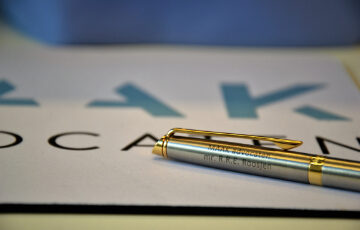
When it comes to dealer contracts in the Netherlands, there is often a fear of complexity and unfamiliarity. However, this need not be the case; Dutch law provides a simple framework for structuring and establishing these agreements. In fact, with an understanding of the legal principles behind them, dealers can craft effective agreements that best serve their interests. As an experienced legal expert on Dutch contract law, I will explain how to establish such contracts and what considerations must be taken into account.
The first step when entering into any kind of agreement under Dutch law is to agree upon the specifics: who are the contracting parties? What type of relationship do they have? What services or goods are being exchanged? What are the Product Compliance Regulations (for example, legal aspects on product liability and/or CE-marking)? It’s essential that all of these points are clearly established up front so as to ensure that both sides understand exactly what they’re agreeing to. This includes details such as payment amounts, delivery times and rights related to intellectual property.
In addition to specifying all terms at length within the agreement itself, it’s also important to consider potential risks associated with each party involved in order minimize conflict down the line. For example, if one party has prior experience dealing with similar types of contracts but another does not, then additional clauses may need to be included which provide extra protection for those without prior knowledge or expertise. By taking such precautions beforehand, you’ll help protect yourself from future disputes or misunderstandings over contractual obligations.
Overview Of Dutch Dealer Agreements
A Dutch dealer contract is an agreement between a supplier and a retailer. It outlines the terms of their relationship, including rights, obligations and responsibilities. These agreements are legally binding in the Netherlands, so it’s important that they be drafted with precision and clarity.
In general, the Dutch contract will set out the parties’ respective roles and duties regarding pricing, display, advertising and sales activities. The agreement should also outline any other special provisions or restrictions such as exclusive territories or minimum purchases. Additionally, both parties need to agree on who has ownership of customer data generated through the sale of products or services.
From these details, we can see that drafting a comprehensive Dutch dealer contract requires careful consideration of all aspects of the dealership arrangement. This ensures that each party understands its rights and responsibilities under the agreement. It also serves to minimize potential disputes down the road by clarifying expectations up front. With this in mind, let’s take a closer look at some specific obligations and responsibilities associated with Dutch dealer contracts.
Obligations And Responsibilities Under Dutch Dealer Contracts
Under a Dutch Dealer Contract, both parties have obligations and responsibilities that they must adhere to. In order for the contract to be legally binding, all agreed-upon terms must be met.
The following are some of the main (general) obligations and associated legal requirements under a Dealer Contract governed by Dutch law:
- The dealer must ensure that the goods or services offered meet the standards set out in the agreement;
- The seller should provide sufficient information about their products and services so that customers can make informed decisions;
- The seller is also responsible for ensuring any warranties provided as part of the agreement are honored.
Both parties should also agree on how disputes will be resolved if any arise during the course of the contractual relationship. It is important to note that both parties have an obligation to act in good faith when dealing with each other’s interests. Furthermore, it is essential to consider any applicable consumer protection laws which may affect their respective rights and duties under this type of arrangement.
These obligations form only part of what needs to be taken into account when entering into a Dutch Dealer Contract. As such, understanding the legal aspects of these agreements is crucial before committing to one.
Legal Aspects Of A Dutch Dealer Agreement
The legal aspects of a Dutch Dealer Agreement are highly regulated under Netherlands law. It is important to consider the various regulations and liabilities when entering into such an agreement, in order to ensure that all parties involved understand their rights and obligations. When it comes to breach of contract, there can be severe consequences for either party in the event of non-compliance with contractual terms and conditions.
Under Dutch law, dealer agreements must include certain elements in order for them to be considered valid. These include clear definitions of the roles and responsibilities of each party, as well as any applicable warranties or guarantees. Additionally, both parties must agree on the duration of the contract and its termination clause if applicable. Furthermore, it is important to take into account potential liabilities should one party fail to fulfill their end of the bargain. This includes providing compensation for losses incurred due to breach of contract or negligence by either side.
In addition to these legal requirements, there are many other benefits associated with having a legally binding dealer agreement in place between two parties operating within The Netherlands. Such agreements guarantee protection from unexpected costs arising from misunderstandings or disputes regarding payment schedules and delivery deadlines which could otherwise lead to costly litigation procedures down the line. Moreover, they provide clarity over who has responsibility for what tasks throughout the course of dealings between both sides.
By taking into consideration these different aspects of a Dutch Dealer Agreement before entering into negotiations with another business partner, companies can benefit greatly from having a secure legal foundation upon which they can rely during future commercial transactions.
Requirements For A Valid Dutch Dealer Contract
The key to a valid Dutch Dealer Contract lies in the details. As with any legal agreement, there are certain requirements that must be met for it to be binding and enforceable under the laws of the Netherlands. The parties involved should ensure that all required clauses and conditions are included, as well as making sure that those clauses provide adequate protection for their respective interests. Here we will discuss some of the more important aspects of a Dutch Dealer Contract and how they affect the legal implications for both parties involved.
First, when drafting a dealer contract, one must keep in mind the various regulations and laws governing such transactions in the Netherlands. These include provisions on disclosure, privacy protections, consumer rights, liability limitations, termination procedures, advertising guidelines and much more. It is important to make sure these regulations have been taken into account when creating your contract so that you don’t end up in breach of them later down the line.
Second, all contracts should clearly outline each party’s obligations and responsibilities during the duration of the agreement. Stipulating things like who is responsible for what tasks or services and ensuring payment terms are made clear can prevent misunderstandings or disputes from arising further down the road. In addition to this, including specific language regarding dispute resolution methods such as arbitration or mediation can also help avoid costly litigation if an issue does arise between parties at some point in time.
Finally, clauses relating to confidentiality and intellectual property rights need to be addressed within any Dutch Dealer Agreement since breaches could lead to serious consequences. Ensuring confidential information remains just that – confidential – through non-disclosure agreements (NDAs) can protect businesses from potential damage caused by misuse of data or other proprietary information being shared without authorization. Similarly, defining ownership over trademarks or patents associated with goods sold under a dealership arrangement can protect against third-party infringement claims which may otherwise result in significant financial losses for either side.
Terms And Conditions Of A Dutch Dealership Agreement
The Dutch Dealer Agreement Regulations define the rights and obligations of both parties involved in a dealership contract. These regulations provide clarity as to what is expected from both parties, which ensures that all expectations are met accordingly. The dealer’s benefits under this agreement include exclusive access to certain products or services within the Netherlands territory, as well as special pricing for larger orders. Furthermore, dealers have the right to be paid on time for their sales efforts and any other activities agreed upon in the contract.
In addition to these rights, it is important that both parties understand the rules regarding termination of a Dutch Dealer Agreement. This includes notification requirements such as when either party wishes to terminate the agreement with due notice given by each side according to specific terms set forth in the document. In case of non-compliance, legal action can be taken against one or both sides if necessary.
Therefore, it is vital that an understanding between both parties exists prior to signing a Dutch Dealership Agreement so that all aspects of its enforcement can be properly understood and respected by each side equally. This will ensure proper dispute resolution should any issues arise during the term of the contract that cannot otherwise be resolved amicably.
Dispute Resolution Procedures In The Netherlands
The Netherlands is a country known for its strong legal system and the efficient way it deals with disputes. In fact, according to research conducted by Deloitte, in 2019, Dutch courts resolved over 95% of all civil cases within one year. This speaks volumes about the effectiveness of dispute resolution procedures in the Netherlands when it comes to dealer contracts.
When dealing with a dispute concerning a dealership agreement in the Netherlands, both parties should consult their respective lawyers who can provide advice on how best to proceed based on applicable laws and regulations. Generally speaking, there are two broad categories of remedies available: contractual remedies and legal consequences stemming from breach of contract. Contractual remedies include specific performance or damages whereas legal consequences may include fines or imprisonment depending on the severity of the violation.
It is important to note that any liabilities arising out of a Dutch dealer agreement are governed by strict rules set forth in Dutch Civil Code (Burgerlijk Wetboek) and Commercial Code (Wetboek van Koophandel). These regulations cover everything from termination rights and obligations to confidentiality agreements between dealerships and customers. Therefore, when faced with a dispute regarding a dealership agreement in the Netherlands, it is crucial that all parties understand these regulations before taking any action.
In order to ensure compliance with Dutch law while resolving disputes related to dealer contracts, it is advisable that those involved seek professional guidance from experienced attorneys familiar with such matters. They will be able to offer sound advice and help determine what steps must be taken in order to reach an amicable settlement which respects everyone’s interests as well as adheres to applicable laws governing such agreements in the Netherlands.
Regulations Governing Dealer Contracts In The Netherlands
In the Netherlands, certain regulations govern dealer contracts. They include provisions that must be included in any contract entered into between a dealer and another party. These provisions are intended to ensure fairness and protect both parties from harm. The first provision is that the dealer must accurately describe the goods or services being sold. This includes providing accurate information about pricing, availability, quality, etc. Additionally, when dealing with customers outside of the Netherlands, dealers should make sure they have complied with all applicable laws in the customer’s country before entering into a contract.
Finally, dealers must also provide clear terms for payment and delivery of goods or services. Any changes to these terms should be made known to each party prior to entering into a deal so both parties can understand what is expected of them going forward. Liabilities associated with dealerships in the Netherlands will be discussed in further detail next.
Liabilities Associated With Dealerships In The Netherlands
Penalties and liabilities associated with dealerships in the Netherlands vary based on whether the dealer is legally incorporated or not. For those that are, they are subject to all of the same laws as any other business entity in the country including tax obligations, compliance requirements, and copyright protections. They also face potential financial risks such as fines for non-compliance or breach of contract. Those who operate without a legal structure may be held personally liable for their actions – both financially and criminally – if found to have violated Dutch law.
When entering into a dealership agreement, there should always be an understanding between parties regarding what each individual’s responsibilities will be and how they can protect themselves from liability. This includes ensuring that all contracts are in writing, clearly stating the rights and duties of each party involved, specifying payment terms, and outlining dispute resolution procedures. Additionally, it is important to consider issues such as warranties and insurance coverage, which could help protect against potential losses due to faulty products or services offered by either side.
It is essential that when considering a dealership arrangement within the Netherlands one fully explores all aspects of potential legalities and liabilities beforehand. Understanding these matters prior to signing any document can help ensure smooth operations going forward while avoiding costly mistakes down the line.
Benefits Of A Dutch Dealer Agreement
A Dutch dealer contract offers a number of important benefits. These include protection from legal and financial liability, as well as clear guidelines on how the dealership should operate. Moreover, it provides an opportunity for both parties to negotiate terms that are mutually beneficial.
The Netherlands has some of the most favorable regulations when it comes to dealer agreements, making them particularly advantageous in comparison to other countries. For instance, dealerships located in the Netherlands can easily establish their operations without having to worry about stringent local laws or regulations which may hinder progress elsewhere. Furthermore, dealing with clients based outside of the country is made simpler by the fact that Dutch law applies throughout Europe – meaning any issues arising between different jurisdictions can be resolved swiftly and efficiently.
In addition, these contracts offer extensive coverage regarding product warranties and performance guarantees; something not available in many other parts of the world. This ensures that customers receive quality products and services while also protecting businesses from potentially costly lawsuits due to defective items or poor customer service. As such, a Dutch dealer agreement presents an ideal way for companies to ensure they remain legally protected whilst providing top-notch goods and services to their customers. Moving forward then, rights granted by a dutch dealership contract will be discussed in detail.
Protection Provided By A Dutch Dealer Agreement
A Dutch dealer agreement is like a fortress – it provides the protection and security needed for all parties involved. In the Netherlands, there are certain provisions that need to be included in any such contract between buyers and sellers. These include details about payment methods, delivery times, warranties, liability clauses and dispute resolution processes. The language used can often be complex so a legal expert should always be consulted when entering into a dealer agreement.
In addition to these contractual conditions, dealers must also consider additional measures of protection including insurance policies or indemnity agreements which may help protect both buyer and seller from financial loss due to unforeseen circumstances. By taking extra precautions in this way, both parties will have peace of mind knowing they are covered in the event something goes wrong during the course of the deal.
When negotiating with potential clients it’s important to ensure that everyone understands their obligations under the contract before signing off on anything. This means making sure that all terms are clearly laid out and agreed upon by both sides so as to avoid any misunderstandings later on down the line. With all of these safeguards in place, every party involved can rest assured that they have taken adequate steps to protect themselves if any issues arise with regards to their Dutch dealership agreement.
Knowing how termination works is essential for understanding when an agreement has been successfully concluded; thus allowing us to move onto discussing how one might go about ending a Dutch dealership agreement.
Termination Of A Dutch Dealership Agreement
In the Netherlands, dealer contracts are subject to termination (in Dutch: “opzegging“). Termination of such agreements may take place at any time by either party in accordance with applicable Dutch laws, case law and regulations governing these types of contractual arrangements. It is important that both parties understand their respective rights and obligations before entering into a contract to avoid disputes over termination.
Where agreement on termination cannot be reached between the contracting parties, it may be necessary for one or both parties to enforce their legal rights under the relevant legislation. This requires an understanding of the procedures associated with terminating dealership contracts in the Netherlands, including provisions related to notice periods, compensation entitlements and remedies available if breach occurs.
It is therefore essential for all parties involved in a dealer contract in the Netherlands to familiarise themselves with local regulations pertaining to such agreements prior to signing them. Understanding these rules will help ensure smooth resolution should circumstances necessitate early termination of the agreement. With this knowledge, parties can approach negotiations confident they have sufficient information regarding their respective rights and responsibilities when seeking agreement on ending a dealer contract.
Regulations Pertaining To Dealer Contracts In The Netherlands
Having discussed termination of a Dutch dealership agreement, it is essential to understand the regulations pertaining to such contracts. In the Netherlands, dealer contracts are subject to certain rules and provisions that must be adhered to in order for them to remain enforceable. The most basic requirement is that all parties involved must have given their consent prior to signing the contract; should any party not agree with its terms or conditions then they cannot be bound by it.
In addition, all Dutch dealer contracts must include details about both parties’ obligations and rights under the agreement. These may cover topics such as payment methods and deadlines, delivery times and locations, warranties and guarantees on products sold, customer service protocols etc. It’s also important to note that all agreements signed between dealers need to be written in clear language and easy-to-understand terminology – this helps ensure that the parties understand their respective roles within the contract.
Finally, when drafting a new dealer contract in the Netherlands there are other considerations which need attention: these can range from local laws governing sales operations through to environmental protection standards applicable in specific areas. As such, it is crucial that professional legal advice is sought before entering into any contractual arrangement so as to ensure compliance with relevant legislation or regulation.
Provisions Of A Valid Dealer Contract In The Netherlands
A valid dealer contract in the Netherlands is like a symphony, with all its parts carefully orchestrated to ensure a smooth performance. The provisions of such contracts should be tailored for each individual situation and must meet the legal requirements of Dutch law. There are several components that must be present within any dealer agreement formed in the Netherlands; failure to include them could mean an invalid or unenforceable deal.
First, it’s important to note that any contract entered into between parties located in the Netherlands must contain specific language regarding jurisdiction and governing laws. This ensures both parties understand which courts will hear disputes related to their business dealings and what type of law applies if one party fails to fulfill their obligations under the contract.
Second, contractual clauses outlining payment terms, delivery dates, quality expectations, and other details should also be included. These clauses help protect both parties from unforeseen circumstances occurring during the course of the arrangement by providing clear guidance on how those events will be handled. Additionally, provisions relating to liability limits, insurance coverage, and dispute resolution may need to be addressed as well – depending on the particular situation at hand.
Finally, any dealer contract executed in the Netherlands must contain signatures from both parties indicating their informed consent thereto; otherwise, it won’t be considered legally binding. Without these essential elements firmly established in writing, no matter how thorough or precise you think your understanding might be with another person – there can never truly exist a valid dealership agreement in this country without formalizing it first through a written document meeting all requisite criteria. Understanding these parameters is integral when considering entering into any kind of commercial relationship here in Holland: missteps could lead to severe consequences of the line.
Consequences Of Breach Of A Dutch Dealership Agreement
When a dealer in the Netherlands breaches their contractual obligations, they are liable for any damages that arise due to this breach. This means that if a party fails to perform any of its provisions under an agreement, it must compensate the other party for any losses or harm suffered as a result. The amount of compensation is usually determined by the terms and conditions specified in said contract.
In some cases, when a dealer has failed to comply with their contractual duties, courts may impose specific performance on them instead of awarding damages. In such instances, the court would order the breaching party to fulfill all aspects of the original contract and give them instructions on how to do so. If they fail to abide by these instructions, then further liability measures might be taken against them including fines or imprisonment.
It is important to note that there are many legal remedies available in case of a breach of a Dutch dealership agreement. It is therefore essential for those involved in commercial transactions involving dealerships in the Netherlands to thoroughly understand their rights and responsibilities before entering into such agreements. Understanding these consequences can prevent unnecessary disputes and ensure compliance with contractual obligations going forward.
Frequently Asked Questions
What Kind Of Liabilities Do Dealers Have In The Netherlands?
In the Netherlands, dealers have certain liabilities that they must take into account when entering into a contract. These liabilities can come in various forms and should be understood before signing an agreement. This article will look at what kind of liabilities dealers may face in the Netherlands, as well as the differences between a Dutch dealer agreement and a dealership contract.
When dealing with contracts in the Netherlands, there are two main types of liability: contractual and non-contractual. The contractual liability applies to agreements made between two parties which include terms and conditions that both parties agree to abide by. Article 6:74 of the Dutch Civil Code is the most applied article here). Non-contractual liability is based on tort law and covers any damage caused by one party that was not agreed upon beforehand. Examples of this could include negligence or product defects. Article 6:162 BW is the general Article here.
To understand these different kinds of liabilities more fully, it’s important to consider how they compare with each other in regard to Dutch dealer agreements versus dealership contracts. A Dutch dealer agreement is generally considered more flexible than a dealership contract due to its lack of specific clauses regarding responsibility for damages. On the other hand, dealership contracts usually contain very detailed provisions about who is liable for any losses incurred during the performance of the contract.
Dealers need to take special care when deciding which type of agreement best suits their needs, as failure to do so could lead to unexpected financial losses down the line. It’s also essential that dealers familiarize themselves with applicable laws around contractual obligations such as warranties, indemnities, and limitation periods – all of which are common elements contained within either type of agreement but carry vastly different implications depending on circumstances surrounding them.
The possible consequences of failing to properly assess potential liabilities prior to entering into an arrangement cannot be overstated; legal repercussions resulting from ignorance or misunderstanding can often be severe and costly for both parties involved. As such, taking time out beforehand to carefully weigh up the options available is paramount if one wishes to avoid potential pitfalls later on down the road.
What Are The Benefits Of Having A Dutch Dealer Agreement?
Having a Dutch dealer agreement offers numerous advantages, particularly when it comes to the protection of both parties involved. These benefits can be found in the form of clearly defined obligations and liabilities that ensure contractual stability and longevity. As an experienced legal expert from the Netherlands, I will now explain why having a Dutch dealer agreement is so beneficial.
To begin with, such agreements provide security for all participants by establishing rules regarding any potential disputes or disagreements. For example, they usually include provisions on how to handle conflicts between dealers and customers in case something goes wrong. Additionally, this type of contract often includes specific clauses outlining what forms of compensation are available should either party breach their duties under the terms of the agreement. This helps to reduce uncertainty about who is responsible for providing financial restitution should a dispute arise down the line.
Another benefit of having a Dutch dealer agreement is that it clarifies ownership rights over physical products and digital assets exchanged as part of the deal. These contracts typically define which property belongs to each party upon delivery or completion – including intellectual property rights like software licenses – thus avoiding confusion later on if certain items need to be returned or exchanged at some point during the course of business operations. Furthermore, these agreements also outline warranties offered by sellers regarding product quality and performance standards; giving buyers peace of mind knowing they have recourse against poor service in cases where expectations were not met initially.
All things considered, it’s clear that signing a Dutch dealer agreement provides substantial protection for both sides within an arrangement. By stipulating conditions related to responsibility and ownership prior to entering into any transaction, companies engaged in commercial activities are able to enjoy the greater assurance that their interests remain safeguarded throughout every stage of a venture’s development – regardless as whether events take an unexpected turn along the way or not.
What Is The Process For Dispute Resolution In The Netherlands?
When entering into a dealer agreement in the Netherlands, dispute resolution is an important consideration. It is essential to understand the process for resolving any disputes that may arise between parties during the term of the agreement. In this article, I will explain how dispute resolution works in Dutch law and provide some tips on how best to proceed when engaging in such a process.
Under Dutch law, there are several options available for dispute resolution. Parties can agree to use arbitration or mediation services, depending on their preferences. Alternatively, they may also choose to take legal action through court proceedings. As with most civil matters in the Netherlands, it is advisable to first attempt negotiations before resorting to more formal methods of dispute resolution. This allows both sides to come up with mutually acceptable solutions without having to go through expensive and time-consuming court processes.
It is important to note that all parties involved must consent to a particular method of dispute resolution before it can be used effectively. Furthermore, if one party does not abide by its obligations under the agreement then either side may initiate litigation proceedings against them as per Dutch procedural rules. Ultimately, whichever option is chosen should ensure fairness and justice for both parties while providing an effective means of resolving disputes quickly and efficiently.
Knowing your rights and responsibilities under Dutch law ensures you are properly equipped to handle any issues that may arise from a dealer contract entered into within the Netherlands jurisdiction – whether these relate directly to the terms of the agreement itself or involve other related matters such as compensation claims or enforcement actions taken by one party against another.
Is There A Minimum Requirement For A Valid Dealer Contract In The Netherlands?
Without it, any agreement between parties would not be legally binding and could lead to costly disputes. Fortunately, Dutch law has clear rules on what constitutes a valid contract and how to resolve potential issues should they arise.
To start with, all contracts must include certain basic elements before they can be deemed legally binding. These typically include: an offer made by one party; acceptance of that offer by another party; consideration (i.e., something of value exchanged); and intent to create legal relations (meaning both parties must have intended to enter into a contractual relationship). Furthermore, the terms of the contract must generally be written down in order for it to be enforceable.
When it comes to dispute resolution in the Netherlands, any disagreements or misunderstandings between the contracting parties are subject to civil procedure laws. All matters are dealt with through mediation or arbitration first, though if no agreement can be reached then litigation may follow. In such cases, decisions will usually be based upon general principles of Dutch contract law as well as relevant case law from prior judicial opinions where applicable.
It is thus vitally important for anyone considering entering into a dealer contract in the Netherlands ensure that all requirements are met beforehand so as to avoid costly court proceedings at a later stage. As you can see then, having knowledge of local legislation regarding contracts is essential when engaging in business dealings within this jurisdiction – particularly if your aim is to make sure everything goes smoothly!
Conclusion
As a Dutch legal expert, I can confidently say that having a valid dealer agreement in the Netherlands is essential for any business. It gives dealers assurance of their rights and obligations under the contract and helps to protect them from potential liabilities.
A well-drafted dealer contract will outline each party’s responsibilities as well as provide dispute resolution procedures should an issue arise between the parties. Furthermore, there are certain minimum requirements which must be met in order to ensure that such contracts are legally binding and enforceable in court.
Overall, it is important to understand what you’re signing up for when entering into a dealer contract in the Netherlands. Doing so will help to ensure that your interests are protected and give you peace of mind knowing that all matters have been properly taken care of.
If you have any questions or require legal assistance for dealer contracts under Dutch law, please don’t hesitate to reach out to our knowledgeable and dedicated team at our Dutch law offices.







